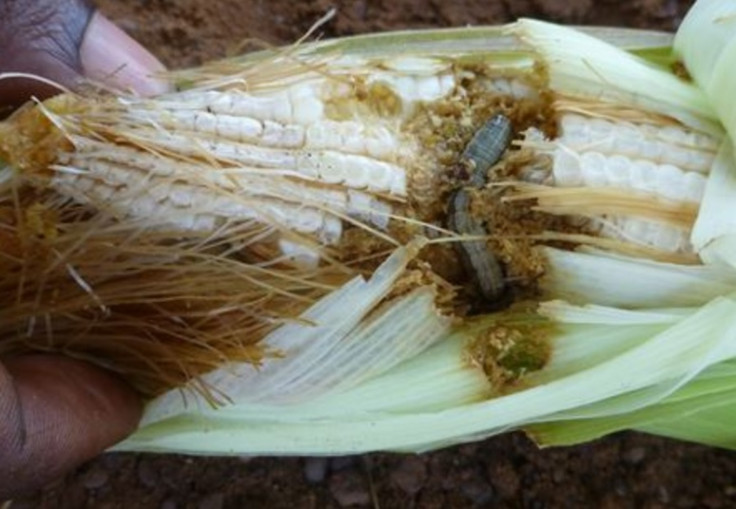What are armyworms and why are they so harmful?
Armyworms are a crop pest native in the Americas but have recently become an invasive species in Africa.

The armyworm is a crop pest that can devastate harvests, and can cause particular harm to maize and rye. The armyworm is actually a moth, and its caterpillars are the form in which it eats crops.
Armyworms often spread in large numbers and consume nearly all plants in their path, earning them their name. They are native to the North and South America, according to the University of Florida's Entemology and Nematology Department. They have recently become an invasive species in West and Central Africa, with their first recorded appearance in early 2016.
Newly hatched armyworm larvae are a pale green colour, becoming brown and growing to a length of about 1.5 inches, according to Dennis Calvin, an entomologist at Pennsylvania State University. The mature caterpillar has several dark stripes along its back and sides. The caterpillar stage lasts about three weeks before they begin to pupate. This takes a further two to four weeks, before they metamorphose into their adult moth form.
The moths have a wingspan of almost two inches. They are thought to migrate to warmer regions during winter and spread to temperate zones during the summer. Armyworms thrive on cool, wet springs followed by warm humid conditions.
Adult armyworms can lay up to 2,000 eggs at a time, which take 6 to 20 days to hatch, according to Integrated Pest Management at North Carolina State University. Once hatched, the caterpillars feed mainly at night, focusing on the leaves of crops but sometimes feeding on the grains as well.
The caterpillars can eat more than 80 species of plant, but consume maize, sorghum, alfalfa, barley and cotton. The main damage they cause is due to their habit of consuming the leaves of plants. Armyworm caterpillars are cannibalistic, and will eat each other if they too densely populate a plant.
Pesticides such as pyrethroids are often used in an attempt to control armyworm outbreaks in the US.
Two species of armyworm have now been found in Ghana for the first time, according to the Centre for Agriculture and Biosciences International. Scientists at CABI say that it could soon spread to tropical Asia and the Mediterranean.
© Copyright IBTimes 2024. All rights reserved.






